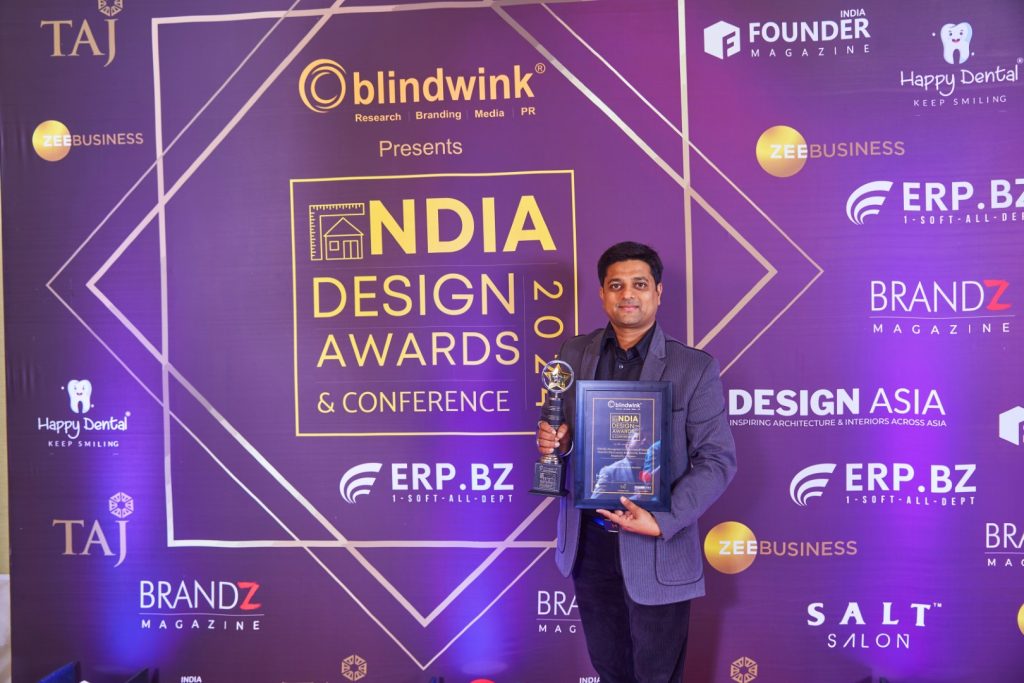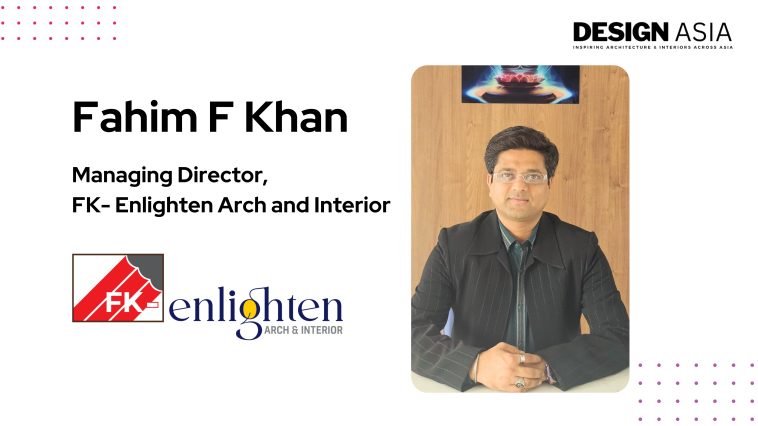In the vibrant world of interior design, where creativity meets functionality, one name that stands out is Fahim F. Khan. As the director and owner of FK-Enlighten Arch & Interior, based in Pune, India, Fahim has made a mark with his unique approach to design—one that blends aesthetic appeal with a deep understanding of human emotions. His journey, which began in the most unassuming of settings, has now blossomed into a story of passion, perseverance, and remarkable success.
A Creative Spark: Childhood Roots
Fahim’s journey into the world of design began long before he ever stepped into a professional studio. Growing up, his family’s general store was more than just a business—it was his first canvas. Surrounded by the hustle and bustle of daily commerce, young Fahim found himself drawn to creative tasks like engraving on pens and crafting radium stickers. These activities may have seemed trivial to others, but for Fahim, they were the seeds of a lifelong passion for design.
“It was in those simple, hands-on tasks that I discovered the joy of creating something beautiful and functional,” Fahim recalls. “I didn’t realize it then, but that was the beginning of my journey into the world of interior design.”

The Birth of FK-Enlighten Arch & Interior
Fahim’s early creative explorations eventually led him to establish FK-Enlighten Arch & Interior on October 25, 2005. Located in Pune’s bustling Hadapsar area, the firm started as a modest venture but quickly gained recognition for its innovative designs and commitment to excellence. Today, FK-Enlighten Arch & Interior operates across India, serving a diverse clientele with residential, commercial, and hospitality projects.
From the outset, Fahim’s vision was clear: to create spaces that are not just aesthetically pleasing but also deeply functional and emotionally resonant. “Design, for me, is about more than just making things look good,” Fahim explains. “It’s about creating environments that improve people’s lives—whether by boosting productivity in an office, fostering comfort in a home, or enhancing the experience in a hotel.”
The Power of Design: Impacting Lives
Fahim’s philosophy is rooted in the belief that good design has the power to transform lives. He understands that the spaces we inhabit—be it our homes, workplaces, or leisure spots—play a crucial role in shaping our moods, behaviors, and overall well-being. Every choice, from color schemes to furniture placement, is made with the intention of enhancing the user’s experience.
“Well-designed spaces can have a profound impact on how we feel and function,” Fahim notes. “A thoughtfully designed room can lift your spirits, make you more productive, and even improve your overall health. It’s this potential for positive change that drives my work.”
Navigating Challenges: The Art of Problem-Solving
In the world of interior design, no two projects are the same, and each comes with its own set of challenges. Whether it’s a residential project with unique client needs or a commercial space requiring innovative solutions, Fahim approaches every challenge with a creative and strategic mindset. He sees these challenges not as obstacles but as opportunities to push the boundaries of his craft.
“Every project is a learning experience,” Fahim says. “It’s about understanding the client’s vision, identifying the challenges, and finding solutions that not only meet but exceed expectations.”
This approach has earned FK-Enlighten Arch & Interior a reputation for delivering bespoke designs that stand out for their creativity and functionality. Fahim’s commitment to excellence and his ability to adapt to different design requirements have been key to his success.
Inspiration and Mentorship: Learning from the Best
Throughout his career, Fahim has drawn inspiration from various sources, but one figure stands out as a significant influence: Architect Reza Kabul. Working with Kabul was a formative experience for Fahim, one that left a lasting impact on his approach to design and problem-solving.
“Reza Kabul taught me the importance of constantly improving your techniques and finding innovative solutions to problems,” Fahim reflects. “He approached challenges with a mindset of learning and growth, and that’s something I’ve tried to incorporate into my own work.”
This mentorship has shaped Fahim’s philosophy as a designer, instilling in him the belief that challenges are not setbacks but opportunities for growth and innovation.
The Ajmer Chishty Foundation Library: A Project Close to the Heart
Among the many projects Fahim has undertaken, one holds a special place in his heart—the design of the Ajmer Chishty Foundation Library. This project was more than just a professional endeavor; it was a spiritual journey that deepened Fahim’s connection to his craft.
“Designing the Chishty Foundation Library was a deeply personal experience for me,” Fahim shares. “It gave me a sense of spiritual fulfillment, and I felt a higher power guiding me throughout the process. This project reaffirmed my belief in the power of design to touch lives in profound ways.”
The project was a testament to Fahim’s ability to blend spirituality with design, earning him the Best Sufi Themed Designer award—a recognition that underscores his commitment to creating spaces that resonate on a deeper level.
Embracing Sustainability: The Future of Design
As the world increasingly shifts towards sustainable and eco-friendly practices, Fahim has embraced this trend in his work. He recognizes the importance of designing spaces that are not only beautiful and functional but also environmentally responsible.
“Sustainable design is the future,” Fahim asserts. “It’s about creating spaces that minimize environmental impact while maximizing comfort and efficiency. Whether it’s through the use of recycled materials, energy-efficient systems, or eco-friendly design strategies, we have a responsibility to make sustainability a priority.”
Fahim’s designs often incorporate elements such as solar panels, green roofs, rainwater harvesting systems, and the use of sustainable materials—demonstrating his commitment to creating a more sustainable future through design.

Understanding Clients: The Key to Success
In Fahim’s view, successful design is about more than just technical skills; it’s about understanding the client. He believes that empathy and the ability to listen are essential qualities for any designer.
“Design is ultimately about solving problems,” Fahim explains. “To do that effectively, you need to understand your clients—their needs, their challenges, their dreams. It’s not enough to just know the latest trends; you have to know your clients and create spaces that truly meet their needs.”
This client-centered approach has been a cornerstone of Fahim’s success, allowing him to build strong, lasting relationships with his clients and deliver designs that exceed their expectations.
Lessons from the Journey: Advice for Aspiring Designers
As Fahim reflects on his journey, he offers some sage advice for budding architects and designers. “Hard work will always outweigh talent,” he says. “It’s not enough to be good at what you do; you have to put in the effort, learn from your experiences, and keep pushing forward.”
He also emphasizes the importance of resilience. “You’re going to face challenges and setbacks—it’s part of the journey. But those setbacks are not the end; they’re just lessons that will make you stronger and better at what you do.”
A Legacy of Excellence: Looking to the Future
As Fahim looks to the future, his focus is on continuing to grow and evolve as a designer. He is committed to expanding FK-Enlighten Arch & Interior, exploring new opportunities, and staying at the forefront of the industry.
“I’m always looking for ways to improve, to learn, and to take on new challenges,” Fahim says. “The journey doesn’t end here—there’s always more to achieve, more to create.”
With his unwavering commitment to excellence, creativity, and client satisfaction, Fahim F. Khan is poised to continue making a significant impact in the world of interior design, leaving a legacy that inspires future generations of designers.


